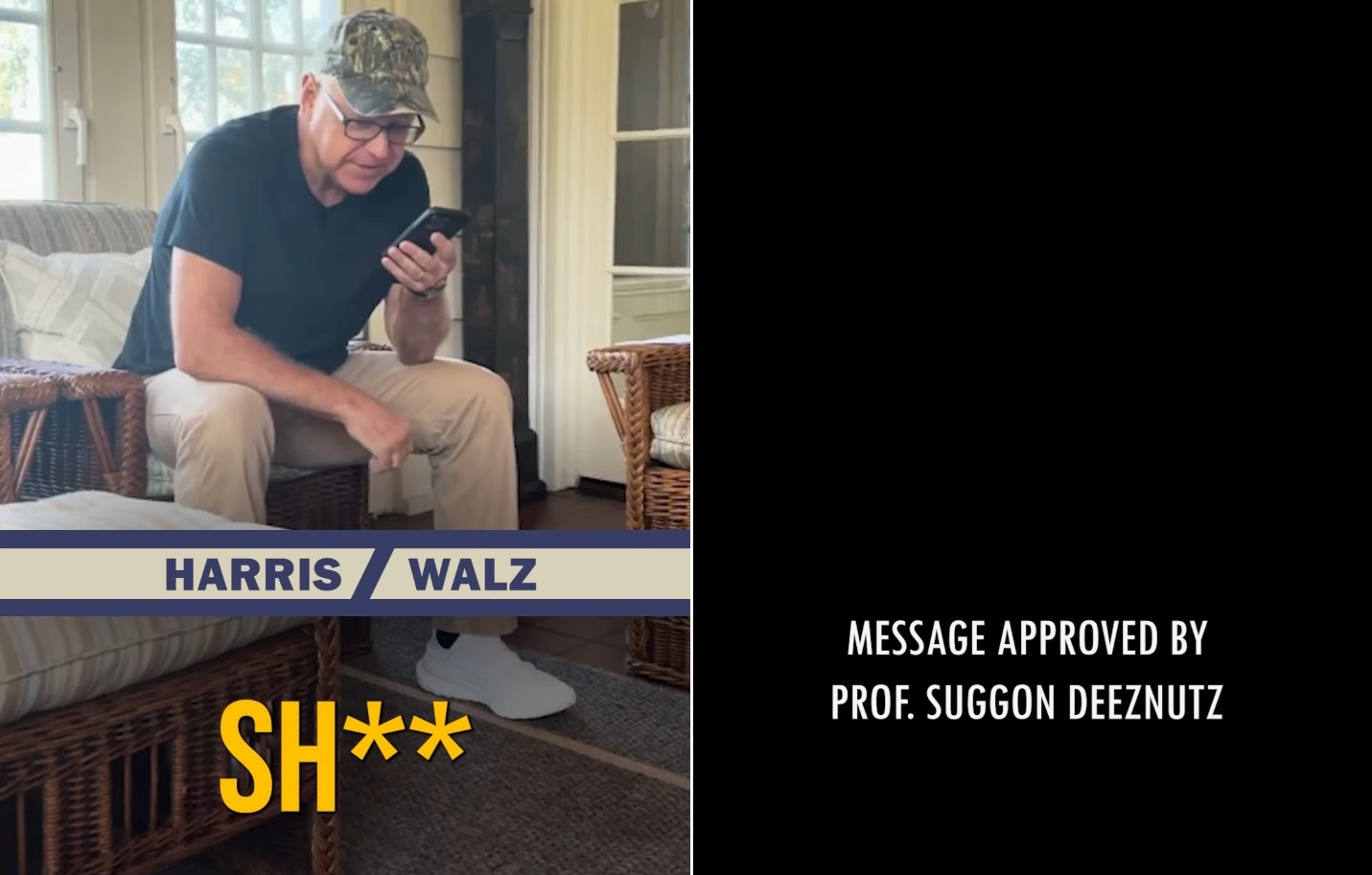
Docket number: 24-cv-3754 (D. Minn.)
The Hamilton Lincoln Law Institute (HLLI) and Upper Midwest Law Center (UMLC) filed a lawsuit challenging the constitutionality of Minnesota’s law, § 609.771, “Use of Deep Fake Technology to Influence and Election,” which bans sharing AI-generated content intended to influence elections.
The lawsuit is the second HLLI has filed on behalf of Mr Reagan, a political commentator on YouTube and X (formerly Twitter) against state laws that purport to ban AI-generated political satire, which violate political free speech rights under the First and Fourteenth Amendments. The previous lawsuit aimed against California’s similar law remains pending, having already won a preliminary injunction.
Minnesota’s unconstitutional restriction of AI parody
In this suit HLLI and UMLC represent Mr Reagan and Rep. Mary Franson of Minnesota House District 12B. Mr Reagan earns a livelihood from his content, and Rep. Franson communicates with her constituents and party members on social media. Both hope to continue posting and sharing videos and political memes online, including those created in part with AI.
Both plaintiffs contend that § 609.771 violates their First Amendment rights to engage in political speech, which has always included parody, yet the law includes no exception for parody.
In July 2024 Mr Reagan posted a parody campaign video on his social media channels critiquing Vice President Kamala Harris’s presidential candidacy. Mr Reagan made the video using an AI-generated voice, and labeled it as parody. Many viewers enjoyed the parody, but California Gov. Gavin Newsom found Elon Musk’s posting of the video “misleading,” and signed a bill to outlaw it. Others claim that the realistic voice of Harris in a parody deceives viewers. U.S. Senator Amy Klobuchar (D–MN) claimed it violated X’s policy against “media that may deceive or confuse people and lead to harm.”
Minnesota’s § 609.771 purports to criminalize “realistic” deepfakes of candidates for office in Minnesota disseminated before an election without the candidate’s consent. It was expanded in 2024 to ban political deepfakes 90 days before a party’s nominating convention and to disqualify candidates convicted of sharing deepfakes from holding office.
This penalty is independently unconstituti0n, and could only subvert the democratic will of the people when imposed. Rep. Franson challenges this new provision, which appears completely unique.
Plaintiffs moved for preliminary injunction on October 11 and HLLI filed a reply in support of the motion on November 16.
AG Ellison submits expert declaration containing AI hallucinations
Attorney General Keith Ellison filed two expert declarations in opposition to plaintiffs’ motion for preliminary injunction. Each concluded that free speech was insufficient to counteract AI-generated deepfakes. But ironically, one of the declarations, by Prof. Jeff Hancock, cited a fictional journal article that had apparently been “hallucinated” by an AI chatbot.
Plaintiffs moved to strike the conclusory portions of the declaration, and to exclude the Hancock declaration in full as it was apparently the product of an AI algorithm, which is not a qualified expert.
In response, Ellison admitted the hallucinations had been generated by Prof. Hancock’s use of ChatGPT-4o. But instead of withdrawing the declaration, Ellison asked the court to file an identical declaration simply replacing the hallucinated references. Plaintiffs opposed this motion on December 4, pointing out that Prof. Hancock admitted that he had actually drafted the declaration and failed to review it closely enough to catch the fictitious citations, which casts doubt about the entire report.
All motions were heard in St. Paul on December 17.
The court denies injunction—for now
On January 10, 2025, the district court denied preliminary injunction, finding that Kohl’s videos, uploaded with the label “parody,” were not covered by § 609.771. The court found that Rep. Franson’s retweet of Elon Musk’s unlabeled posting of the video gives her standing, but that she had unreasonably delayed filing suit because she knew about the law when she voted for it in 2023 (sandwiched in between two anti-deepfake revenge porn laws). The court found no “irreparable harm” due to this supposed delay.
The court emphasized that “a determination on Representative Franson’s constitutional claims will eventually be made,” and simply denied preliminary injunction.
On the same day, the district court granted plaintiffs’ motion to strike the Hancock declaration, noting that Attorney General Ellison had a “personal, nondelegable responsibility” to validate the truth of the papers filed, which included fabricated citations. The court agreed with plaintiffs that AI generation called “competence and credibility” of entire declaration into question.
Plaintiffs appealed the denial of standing and irreparable harm and filed their opening brief with the Eighth Circuit on April 18. An oral argument will likely occur in the summer or early fall.
Similar litigation
Kohls previously filed suit against California officials (Kohls v. Bonta) challenging similar bills, where Gov. Gavin Newsom singled out Kohls parody as illegal under a newly-enacted law. On October 2, the Eastern District of California granted a preliminary injunction in Kohls v. Bonta. Summary judgment motions in that case will be briefed soon.
Case Documents
| Description | |
| Apr 18, 2025 | OPENING BRIEF of Plaintiffs Kohls and Franson |
| Jan 10, 2025 | ORDER Denying Preliminary Injunction |
| Jan 10, 2025 | ORDER Granting Motion to Strike Hancock Declaration |
| Dec 13, 2024 | REPLY in Support of Motion to Exclude Expert Declarations |
| Dec 04, 2024 | OPPOSITION to Ellison’s Motion to File Amended Expert Declaration |
| Nov 16, 2024 | MEMORANDUM in Support of Motion to Exclude Expert Declarations |
| Nov 15, 2024 | REPLY MEMORANDUM in Support of Preliminary Injunction |
| Oct 11, 2024 | MEMORANDUM in Support of Motion for Preliminary Injunction |
| Sep 27, 2024 | VERIFIED COMPLAINT of Christopher Kohls and Mary Franson |
